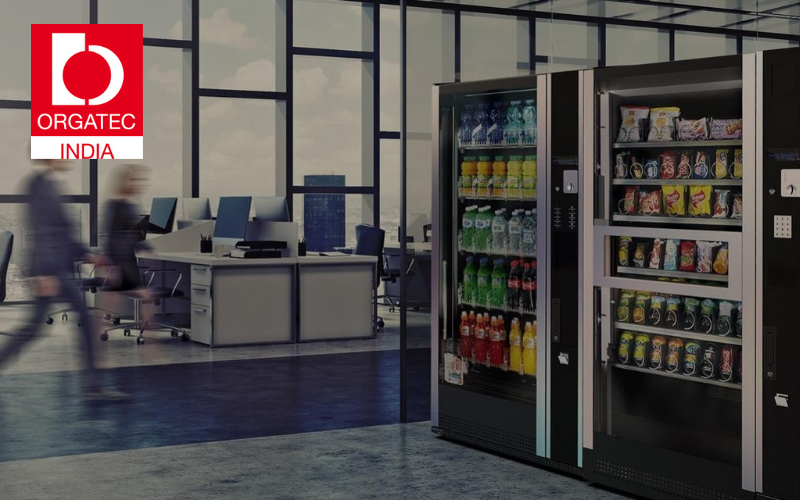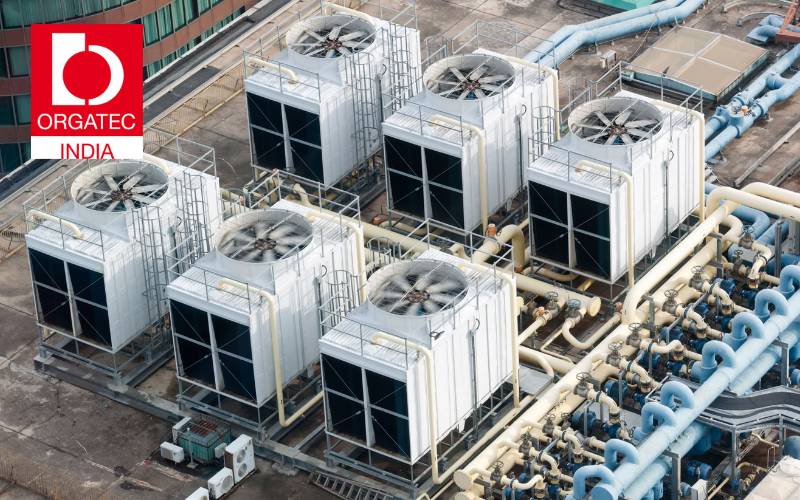

Blog Details
Telecommunication and Internet Service Providers: The Invisible Architects of Smart Workplaces
Share Page

In a world that has moved from work-life balance to work-life integration, the workplace is no longer just a physical space. It’s a tech-enabled experience, powered by invisible threads of data, voice, video, cloud, automation, and IoT. In this seamless blend of aesthetics and functionality, Telecommunication and Internet Service Providers (ISPs) emerge as the true backbone of modern office environments.
From global enterprises to India’s fastest-growing coworking spaces, the demand for always-on, high-speed, secure, and scalable connectivity has become non-negotiable. At the heart of this revolution is a new breed of telcos and internet providers — not just offering services but delivering infrastructure that supports the very DNA of smart workplaces.
And it’s exactly this ecosystem that ORGATEC India 2025 brings into focus — uniting the worlds of workspace design, automation, and connectivity under one powerful roof at the Jio World Convention Centre, Mumbai, from November 4–6, 2025.
🧠 Why Telecom is More Than Just Infrastructure in Today’s Workspaces
Walk into any modern workspace today — a sleek corporate HQ in Gurgaon, a buzzing coworking hub in Bangalore, or a climate-conscious office in Pune — and beneath the design, lighting, and furniture, lies an invisible nervous system: high-speed, secure telecom infrastructure.
Here’s why it matters more than ever:
- Hybrid Work is Here to Stay: Offices are no longer centralised. Teams work across geographies using cloud-based tools, VC platforms, and shared digital resources. Telecom powers that connectivity.
- IoT and Building Management Systems (BMS): Smart offices depend on real-time data — from occupancy sensors to climate controls. These IoT ecosystems can’t function without fast and stable networks.
- Data-Driven Office Planning: Usage analytics, facial recognition access, smart scheduling, and digital twins for workspace optimization all require telecom-grade connectivity and cloud integration.
- Security and Surveillance: High-definition CCTV, intrusion detection systems, and cloud video storage rely heavily on enterprise-grade leased lines and firewalls.
- Collaboration Beyond Borders: High-speed internet isn’t just about emails — it’s about running 4K video calls, cloud collaboration on large files, and real-time updates across departments.
In short, telecom is the bedrock of productivity — powering everything from ergonomic meeting pods to AI-enabled desks.
🌍 Global Telecom Leaders Driving Smart Workspace Innovation
1. Cisco Systems (USA)
- Not just a hardware giant — Cisco leads in enterprise connectivity, hybrid collaboration platforms (Webex), and cloud-managed networking (Meraki).
- With products like Cisco Spaces, they offer real-time occupancy monitoring, air quality sensing, and space utilization analytics — perfect for facility managers and commercial real estate players.
2. AT&T Business
- Supports remote workforce management, 5G networks for enterprise, and edge computing services.
- Works closely with industries such as finance and healthcare to implement smart office environments that prioritize security and speed.
3. Verizon Business
- Verizon’s 5G Edge enables ultra-low-latency applications — from VR-based meeting rooms to robotic automation in large facilities.
- Their unified communication and network-as-a-service (NaaS) platforms empower global companies with dynamic office solutions.
4. BT Global and Orange Business
- These firms offer network transformation services, helping MNCs build secure digital workplaces.
- Their cloud-first solutions cater to workspace transformation projects in Europe, Asia, and now increasingly in India.
IN Indian ISPs Reimagining the Future of Work
1. Airtel Business
- A market leader offering SmartOffice solutions – bundling leased lines, IP-PBX, cloud storage, and firewall.
- Their data center brand Nxtra by Airtel is powering startups, IT parks, and coworking spaces with cloud-native hosting and AI-based cybersecurity.
- Collaborating with real estate developers to integrate fiber networks in upcoming commercial towers.
2. Reliance Jio Business
- With JioAirFiber and JioEnterprise, Reliance is pushing fast into India’s SMB and startup ecosystem.
- Jio’s focus on IoT platform development, smart surveillance, and Edge Cloud deployment positions it as a go-to partner for workspace automation.
3. Tata Tele Business Services (TTBS)
- Offers a holistic product called SmartOffice™ — integrating internet, storage, IP voice, and security into a single box.
- Their IoT and SD-WAN solutions are being adopted by facility managers, coworking chains, and ITES firms looking to create resilient digital infrastructure.
4. ACT Fibernet
- An emerging player in the enterprise ISP space, with a strong presence in South India.
- Works with hospitality and commercial property firms to deliver enterprise-grade internet for multi-tenant buildings.
5. Spectra and YOU Broadband
- Spectra is known for its low-latency fiber and plug-and-play solutions in commercial tech hubs and IT parks.
- Ideal for small offices and consultants who need secure, high-speed broadband with managed support.
6. Excitel
- An emerging player in urban broadband, Excitel is rapidly scaling in tier-1 and tier-2 cities.
- Known for affordable gigabit speeds and customized internet plans for startups, small offices, and remote workers in shared office environments.
7. RailWire (by RailTel)
- A government-backed broadband provider offering fiber-based high-speed internet, especially in semi-urban and underserved commercial regions.
- Strong in educational institutions, public offices, and government buildings, RailWire is now extending solutions to smart city and smart workspace projects.
8. Sify Technologies
- A pioneer in enterprise digital infrastructure, Sify offers data center services, cloud connectivity, managed Wi-Fi, and WAN solutions for businesses.
- Widely trusted by IT parks, BPOs, and large corporates, Sify helps integrate connectivity with digital workplace transformation goals.
9. Tikona Infinet (Acquired by Airtel)
- Previously focused on wireless broadband for businesses, Tikona’s infrastructure is now part of Airtel’s enterprise suite.
- Still serves as a last-mile provider in commercial zones with challenging fiber access, especially in Western India.
10. Netplus Broadband
- A regional ISP with growing enterprise solutions in North India, offering dedicated leased lines and custom corporate internet packages.
- Targeting real estate projects, IT corridors, and shared commercial buildings with bundled VoIP, VPN, and video conferencing solutions.
Telecom is the New Design Language of Work
In the same way lighting defines the mood and furniture defines comfort, connectivity now defines function. It drives employee experience, operational efficiency, and design innovation. Telecom and internet providers are no longer utility vendors — they are co-creators of the modern workplace.
And for those building the future of work, ORGATEC India 2025 is the only platform in India that connects the dots between connectivity, creativity, and collaboration.
📆 Mark your calendar: November 4–6, 2025
📍 Jio World Convention Centre, Mumbai
👉 Become an Exhibitor – Showcase your smart office solutions and build partnerships with telecom leaders.
ORGATEC India isn’t just about how workspaces look. It’s about how smartly they work.





